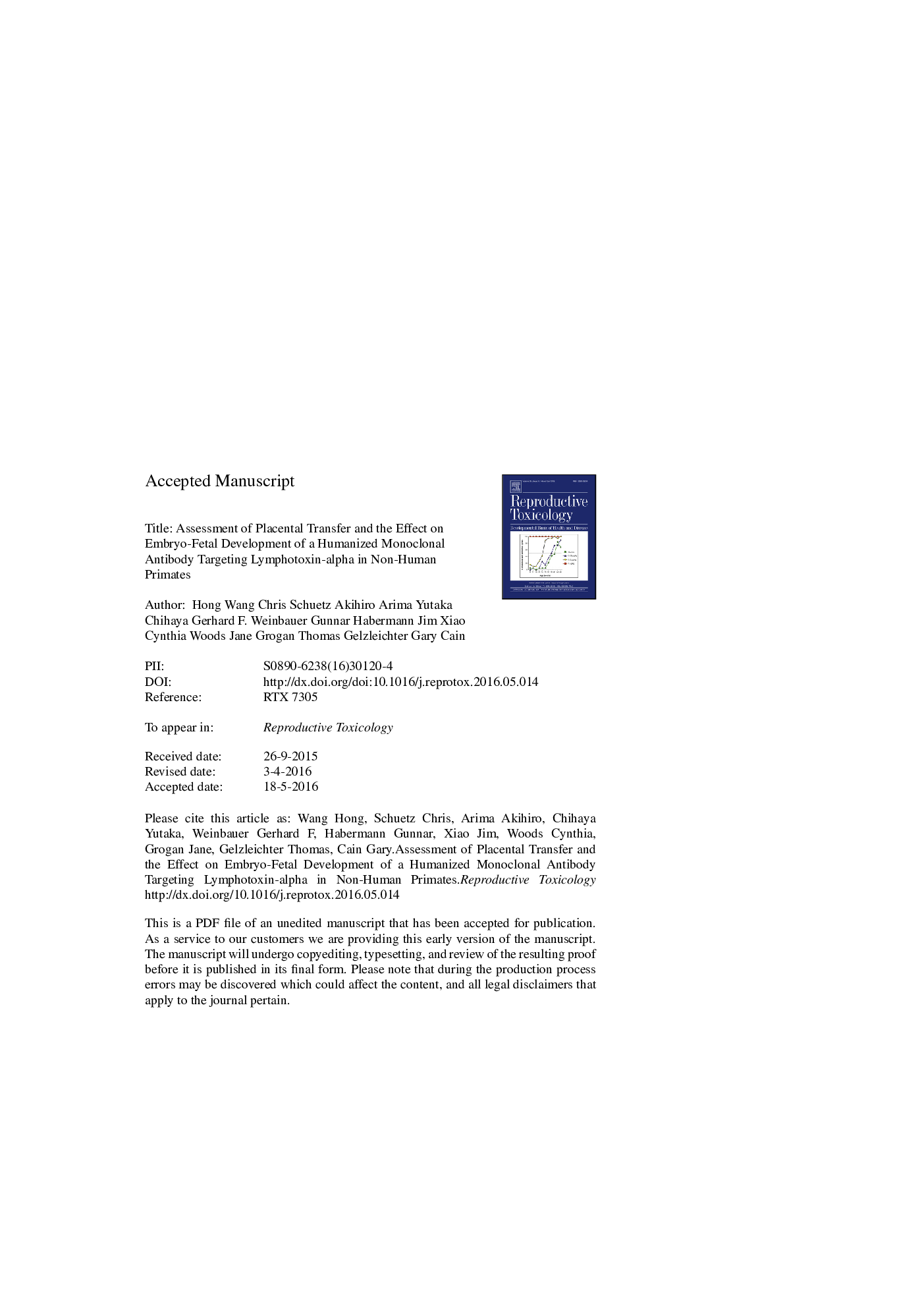| Article ID | Journal | Published Year | Pages | File Type |
|---|---|---|---|---|
| 5857967 | Reproductive Toxicology | 2016 | 58 Pages |
Abstract
An enhanced embryo-fetal development study was conducted in cynomolgus monkeys using pateclizumab, a humanized IgG1 monoclonal antibody (mAb) targeting lymphotoxin-alpha. Pateclizumab administration between gestation days (GD) 20 and 132 did not induce maternal or developmental toxicities. The ratio of fetal-to-maternal serum concentration of pateclizumab was 0.73% on GD 50 and 61% by GD 139. Decreased fetal inguinal lymph node-to-body weight ratio was present in the high-dose group without microscopic abnormalities, a change attributable to inhibition of lymphocyte recruitment, which is a pharmacologic effect of pateclizumab during late lymph node development. The effect was observed in inguinal but not submandibular or mesenteric lymph nodes; this was attributed to differential susceptibility related to sequential lymph node development. Placental transfer of therapeutic IgG1 antibodies; thus, begins during the first trimester in non-human primates. Depending on the potency and dose levels administered, antibody levels in the fetus may be pharmacologically or toxicologically relevant.
Keywords
HEVslymphotoxin αTNFCmaxFDCsR-PhycoerythrinmAbFITCLTαAPCTNFRATANHPRheumatoid arthritisallophycocyaninMonoclonal antibodyTherapeutic monoclonal antibodyElectrochemiluminescence assayPlacental transferImmunohistochemistryIHCToxicokineticsIntravenousEmbryo-fetal developmentsubcutaneousFollicular dendritic cellsIntramuscularPharmacodynamicsPharmacokineticstumor necrosis factorfluorescein isothiocyanateLymphotoxin alphanon-human primatehigh endothelial venulesECLATNF receptor
Related Topics
Life Sciences
Environmental Science
Health, Toxicology and Mutagenesis
Authors
Hong Wang, Chris Schuetz, Akihiro Arima, Yutaka Chihaya, Gerhard F. Weinbauer, Gunnar Habermann, Jim Xiao, Cynthia Woods, Jane Grogan, Thomas Gelzleichter, Gary Cain,
